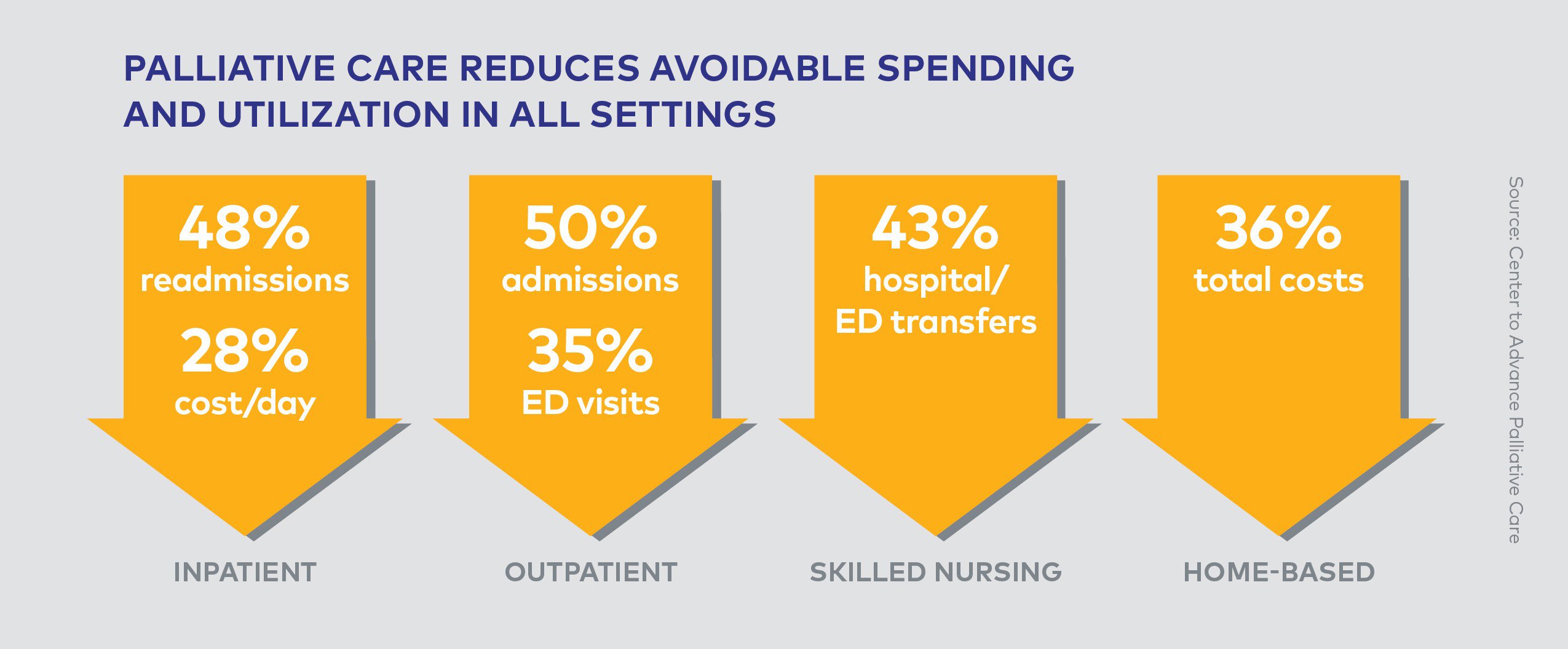About Palliative Care
Palliative care sees the person beyond the disease. It is a fundamental shift in health care delivery.
What is Palliative Care?
Palliative care is specialized medical care for people living with a serious illness. This type of care is focused on providing relief from the symptoms and stress of the illness. The goal is to improve quality of life for both the patient and the family.
Palliative care is provided by a specially-trained team of doctors, nurses, social workers, chaplains, and other specialists who work together with a patient’s other doctors to provide an extra layer of support. Palliative care is based on the needs of the patient, not on the patient’s prognosis. It is appropriate at any age and at any stage in a serious illness, and it can be provided along with curative treatment.
(Learn more: Patients Tell Their Stories)
Palliative Care Improves Quality of Life and Lowers Symptom Burden
Palliative care specialists improve quality of life for the patients whose needs are most complex. Working in partnership with the primary physician, the palliative care team provides:
- Time to devote to intensive family meetings and patient/family counseling
- Skilled communication about what to expect in the future in order to ensure that care is matched to the goals and priorities of the patient and the family
- Expert management of complex physical and emotional symptoms, including complex pain, depression, anxiety, fatigue, shortness of breath, constipation, nausea, loss of appetite, and difficulty sleeping
- Coordination and communication of care plans among all providers and across all settings
Numerous studies show that palliative care significantly improves patient quality of life and lowers symptom burden. Apart from being the right thing to do for patients, this improved quality of life also means that an encounter with the health care system is less stressful and traumatic for families.
Palliative Care Improves Care Quality While Lowering Costs
Studies consistently show improvements in both quality measures and resource utilization once palliative care is introduced. Visit The Case for Palliative Care for more detail.

The Growth of Palliative Care
The field of palliative care has shown stunning growth over the last 15 years. Today, more than 1,700 hospitals with 50+ beds have a palliative care team, and palliative care is spreading beyond the hospital into community settings where people with serious illnesses actually live and need care.